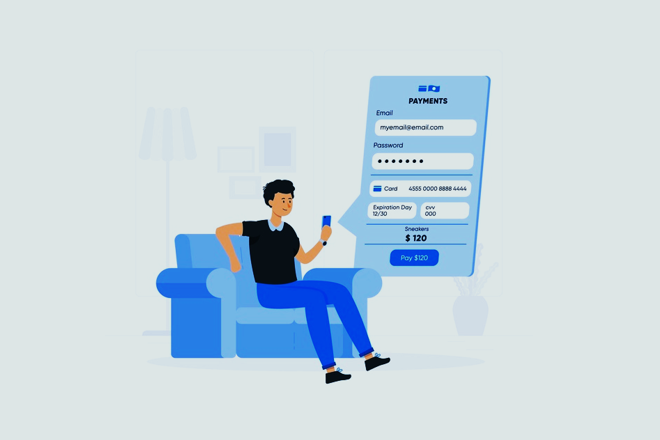The Internet sure is amazing.
It helps you learn tons of cool new things, relax by browsing funny memes, stay in touch with friends, meet new people, and blow off steam after a day of work with your favorite online game.
But browsing the web isn’t as safe as it used to be. Most users now have to deal with annoying hackers who eavesdrop on their traffic, malware infections waiting around every cyber corner, and seemingly endless online surveillance that violates their privacy.
But you know what? Businesses and entrepreneurs have it even harder!
Besides all those threats I mentioned, they also have to worry about:
- Severe data breaches – which actually increased by 54% in 2019.
- Losing tons of money – around $200,000 on average – and going out of business due to cyber attacks.
- Dealing with ransomware attacks quite regularly – which 53% of execs give in to, actually.
- Losing the SEO battle against competitors because of geo-restrictions.
- Governments that censor the web – which includes useful business tools like social media platforms and VoIP apps. The countries in that article are only a few examples, by the way.
- Phishing attacks (which recently increased by 400%!), which are now considered the top online security threat for businesses.
With all that to keep track of and worry about, it’s getting pretty hard to successfully run your business on the web.
Planning online marketing strategies, engaging with leads and customers online, collaborating with remote employees and clients, planning roadmaps, and asking for and incorporating customer feedback – it’s all getting harder to focus on without worrying that, someday, a hacker will bring down everything you built.
It sounds bad, I know, but don’t worry – there are ways you can boost your online security and enjoy better Internet freedom as a business owner and entrepreneur:
Use a VPN
VPN stands for Virtual Private Network, which is essentially an online service that hides IP addresses, and encrypts Internet traffic.
Hiding your IP address can allow you to bypass geo-blocks, government censorship, stop competitors from tracking you, and keep your network safe from DoS/DDoS attacks (which can cause serious damage).
And by encrypting your traffic, a VPN makes sure hackers (or anyone else) can’t spy on it – not even when your employees use your network with the coffee shop’s unsecured WiFi.
That all sounds nice, right?
Just one problem – how do you find a good VPN for your business?
Well, there are hundreds of providers on the market, so making the right choice can be hard.
Since you’ve already got lots of things to deal with business-wise, I’m gonna make things easier for you – CyberGhost is a pretty decent option.
The service supports up to seven simultaneous connections, has tons of servers (5,000+), works on routers, uses military-grade encryption, and offers great pricing.
If you want to learn more about CyberGhost, be sure to check out this review.
Properly Secure Your Network
I know that’s not saying much, but bear with me. I’m going to go over the things you can do to better secure your business’ intranet and even your home network, since not all entrepreneurs have an actual office space when they start out:
Use Password Managers
More often than not, weak passwords are behind online security breaches.
Even if it seems obvious, it’s imperative that you create a strong password. But both you and your employees know how difficult and time-consuming it can be to keep track of all of them, use a different one for each account, and change them regularly.
Well, that’s where password managers come into play. They’re software that securely stores all passwords in an encrypted vault.
And you only need one master password to access them.
What’s more, password managers have auto-fill features that automatically complete login fields for you. This is both convenient and secure, as these can detect false websites and prevent auto-filling – excellent for avoiding phishing attacks and keyloggers.
Also, most managers have their own password generators – perfect for saving time!
Some of the best password managers include PSONO, 1Password, and LessPass.
Install Security Programs
Malware is a serious threat to businesses – that much is clear.
So, you should install antivirus/antimalware software on all your devices. Also, don’t shy away from asking employees to install security programs on their mobile devices – especially if they bring them to work.
You need to schedule regular scans and keep software up to date all the time. If you ignore updates, new malware strains can easily sneak by and infect your network.
Here are some good security options you can check out: ESET, Norton, and Malwarebytes.
Implement Multi-Factor Authentication
In a nutshell, multi-factor authentication adds one or two more steps you need to go through to complete the login process.
Usually, you’ll have to type in a randomly generated code you get through SMS or an app after you type in your username and password.
This is a great way to boost your network’s security. Even if cybercriminals somehow compromise your employees’ login credentials, they won’t be able to do anything with them.
Ideally, you should only use services that support multi-factor or two-factor authentication. If possible, try to implement it on your own intranet too.
Train Your Employees
Your employees are an important line of defense against hackers. Telling them not to open shady emails is a good start, but it won’t do much. You actually need to offer them clear training with guidelines and examples.
You need to plan insightful and interactive training sessions for them where they can learn:
- Exactly how to recognize phishing emails and vishing calls, and how to handle them.
- Why they should always use a VPN when accessing company servers.
- Why they should always log out of their accounts when they’re done for the day.
- Proper online security procedures for the personal devices they bring into work.
And if you’re worried employees won’t be too enthusiastic about the training, reward them for passing it. Bonuses, time off, parties – there are tons of options.






